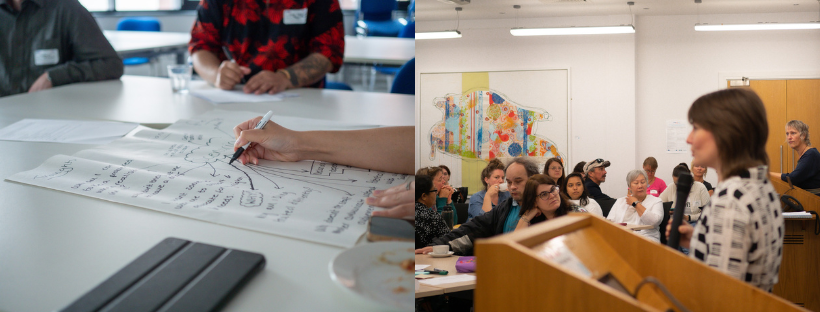CAPE: THE POWER OF EMPATHY

Understanding lived experiences of pain can only lead to effective change for all. Empathy was at the heart of all the lived experience stories within the CAPE project.
Empathy is a powerful tool that allows us to understand and share the feelings and experiences of others. It is an essential aspect of our humanity, enabling us to connect with others and build meaningful relationships. This is particularly important for those living with pain, people shared how empathy was often lacking in their relationship with health and social care and unemployment.
I have learnt too much about the challenges that people face when living with long-term chronic pain. “Not being believed”. These lived experiences are full of the good, the bad and the indifferent responses that people get when seeking help and understanding to manage their pain. Empathy is also crucial in creating effective and sustainable change in society and service for people. Through empathy, we can see these challenges from different perspectives, develop more inclusive and equitable solutions, and ultimately, work towards a better world for those living with pain.
Empathy involves understanding and sharing the feelings and experiences of others. It is more than just sympathy or feeling sorry for someone; it requires us to put ourselves in another person’s shoes and experience their emotions and struggles. Empathy is a fundamental aspect of our social and emotional intelligence, allowing us to connect with others on a deeper level. When we empathize with someone, we are acknowledging their experiences and validating their feelings. This can be a powerful tool in building trust and strengthening relationships.
Empathy is important for creating effective and sustainable change because it allows us to see issues from different perspectives. When we empathize with others, we can understand the root causes of societal problems and how they impact different people. For example, if we are working to address poverty, we must understand the lived experiences of those who are living in poverty. This means recognizing the systemic barriers that prevent individuals from accessing resources and opportunities. By understanding these experiences, we can develop more effective strategies that address the root causes of poverty and create sustainable change.
Through empathy, we can develop more inclusive and equitable solutions to societal problems. When we take the time to understand the lived experiences of different groups, we can develop solutions that are more inclusive and equitable. For example, if we are working to address racial disparities in healthcare, we must understand the experiences of marginalized communities and how they are impacted by systemic racism. By centering their experiences and perspectives, we can develop solutions that are more effective, equitable, and sustainable.
In conclusion, empathy is a powerful tool that allows us to connect with others, understand their experiences, and create effective and sustainable change. By recognizing the importance of empathy, we can work towards a more inclusive and equitable society, where everyone’s experiences are valued and respected. By taking the time to understand the lived experiences of different groups, we can develop more effective solutions that address the root causes of societal problems. Ultimately, empathy is essential in building a better world for all.
Take a look at an example story gathered as part of this project over on the Community Reporter Website.
Written by Isaac Samuels (PVM Team Member)